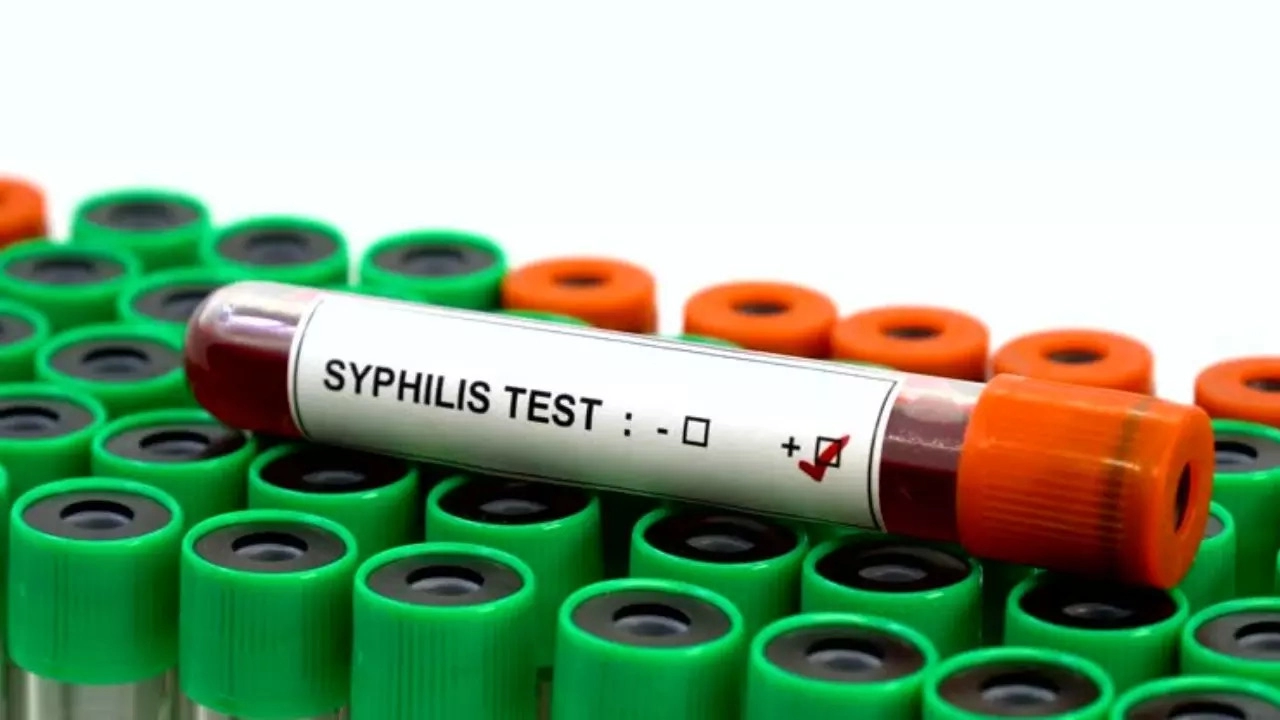Pallavi Mehra • 09 Sep 2024
Syphilis Cases At Highest Since 1950s In US - Signs To Watch Out For

Syphilis Cases At Highest Since 1950s In US - Signs To Watch Out For (Image Credits: iStock)
Syphilis, a sexually transmitted infection, was nearly eradicated in the U.S. at the start of the 21st century but has seen a significant resurgence. In 2022, the Centers for Disease Control and Prevention (CDC) reported over 200,000 syphilis cases — the highest number since 1950. Congenital syphilis cases have also risen tenfold over the past decade, despite 90% being preventable, according to the CDC.
Experts attribute this resurgence to underfunded prevention programs over the last 20 years and the challenges in diagnosing syphilis, often called the “great imitator” due to its varied symptoms. Many people show no symptoms or are unaware they’re infected, and even when they visit a doctor, proper diagnosis is not always guaranteed.
“There are many individuals seen in private practices, emergency rooms, or walk-in clinics, where clinicians may not think of syphilis or take a detailed sexual history,” said Dr Kenneth Mayer, an infectious disease physician and medical research director at the Fenway Institute in Boston. With a generation of doctors who rarely encountered syphilis during their training, Mayer emphasized that "the issue is testing not being done in the first place."
The COVID-19 pandemic further exacerbated the situation as public health departments shifted sexually transmitted infection (STI) resources to focus on the virus.
“The solutions for controlling syphilis are quite straightforward. We’re not talking about high-tech innovations or new treatments,” explained Dr. Dave Chokshi, chair of the Common Health Coalition and former New York City Health Commissioner. “It’s about closing gaps in testing and treatment.”
As syphilis cases surge, doctors and public health officials are developing innovative and sometimes unconventional methods to screen for the disease and halt its spread.
Signs and Symptoms of Syphilis:
Syphilis progresses through four stages, each with distinct symptoms. However, many people with syphilis may not show noticeable symptoms, making regular screening important.
1. Primary Stage:
- Appearance of a painless sore, called a chancre, at the site of infection (genitals, mouth, anus).
- The sore typically appears 3 weeks after exposure and heals on its own within 3-6 weeks.
2. Secondary Stage:
- Skin rashes that don't itch, often on the palms of the hands and soles of the feet.
- Mucous membrane lesions.
- Flu-like symptoms (fever, fatigue, swollen lymph nodes, and sore throat).
- Hair loss and weight loss may also occur.
3. Latent Stage:
- No visible symptoms during this stage.
- The infection remains in the body and can last for years.
- Without treatment, it may progress to the most severe form.
4. Tertiary Stage:
- Occurs years or decades after the initial infection if left untreated.
- Can affect multiple organs, including the heart, brain, and nerves.
- May result in paralysis, blindness, dementia, and even death.
Congenital Syphilis (in infants born to infected mothers):
- Can cause miscarriage, stillbirth, premature birth, or life-threatening symptoms in newborns such as deformities, developmental delays, and seizures.
Preventive Measures:
1. Safe Sexual Practices:
- Use condoms correctly and consistently during sexual activity.
- Limit the number of sexual partners.
- Regularly communicate with your partner about sexual health and testing.
- Get tested for STIs regularly if sexually active, especially if engaging in high-risk behaviours.
2. Screening and Early Detection:
- Routine STI screenings for sexually active individuals, particularly for those with multiple partners or those who are pregnant.
- Pregnant women should be screened for syphilis early in pregnancy to prevent congenital syphilis.
3. Avoiding Contact with Sores:
- Refrain from sexual activity if you or your partner have visible sores or are being treated for syphilis.
4. Partner Notification and Treatment:
- If diagnosed with syphilis, notify all sexual partners so they can get tested and treated to prevent the spread of the infection.
5. Treatment:
- Syphilis is curable with antibiotics, typically penicillin.
- Early detection and treatment can prevent the disease from progressing to later, more dangerous stages.
Get Latest News Live on Times Now along with Breaking News and Top Headlines from Health and around the world.